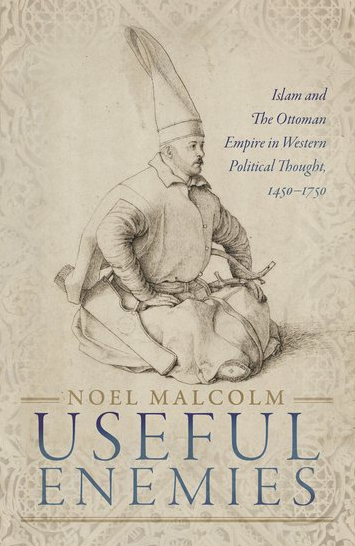Those who keep an eye on this blog may be interested to learn of the publication earlier this month of Noel Malcolm’s Islam and The Ottoman Empire in Western Political Thought, 1450–1750. The latest work by the Chair of our Cultures of Knowledge project Steering Committee is described by its publisher Oxford University Press as an overview across three hundred years of ‘the mental world of those in the West who wrote in a political way about the East’.
Just days off the press, the book has been praised as ‘wise and beautifully judged’,[1. Christopher de Bellaigue, ‘Useful Enemies by Noel Malcolm. Review – learning from the Turks’, The Guardian, 22 May 2019.] as ‘learned and fascinating’,[2. Sameer Rahim, ‘How an early European encounter with Islam broke stereotypes’, Prospect, 5 May 2019.] and as a ‘brilliant study … on the ways in which Western thinkers used what they knew about Islam and the Levantine world to make points to their own European readership’.[3. Rowan Williams, ‘How Islam shaped the West Early modern Europe and the “shame-praising” of the Muslim world’, New Statesman, 15 May 2019.] Dr Williams, the former Archbishop of Canterbury and current Master of Magdalene College, Cambridge, concludes his review with the thought-provoking observation: ‘Without blurring the basic points of real diversity, religious and social, between western Europe and its menacing, tantalising, enviable and bewildering neighbour, Malcolm prompts us to ask not only how the West got to be “modern”, but whether the categories of “modern” and “pre-modern” are as clear cut as we might have thought when we try to do justice to our global political environment.’

